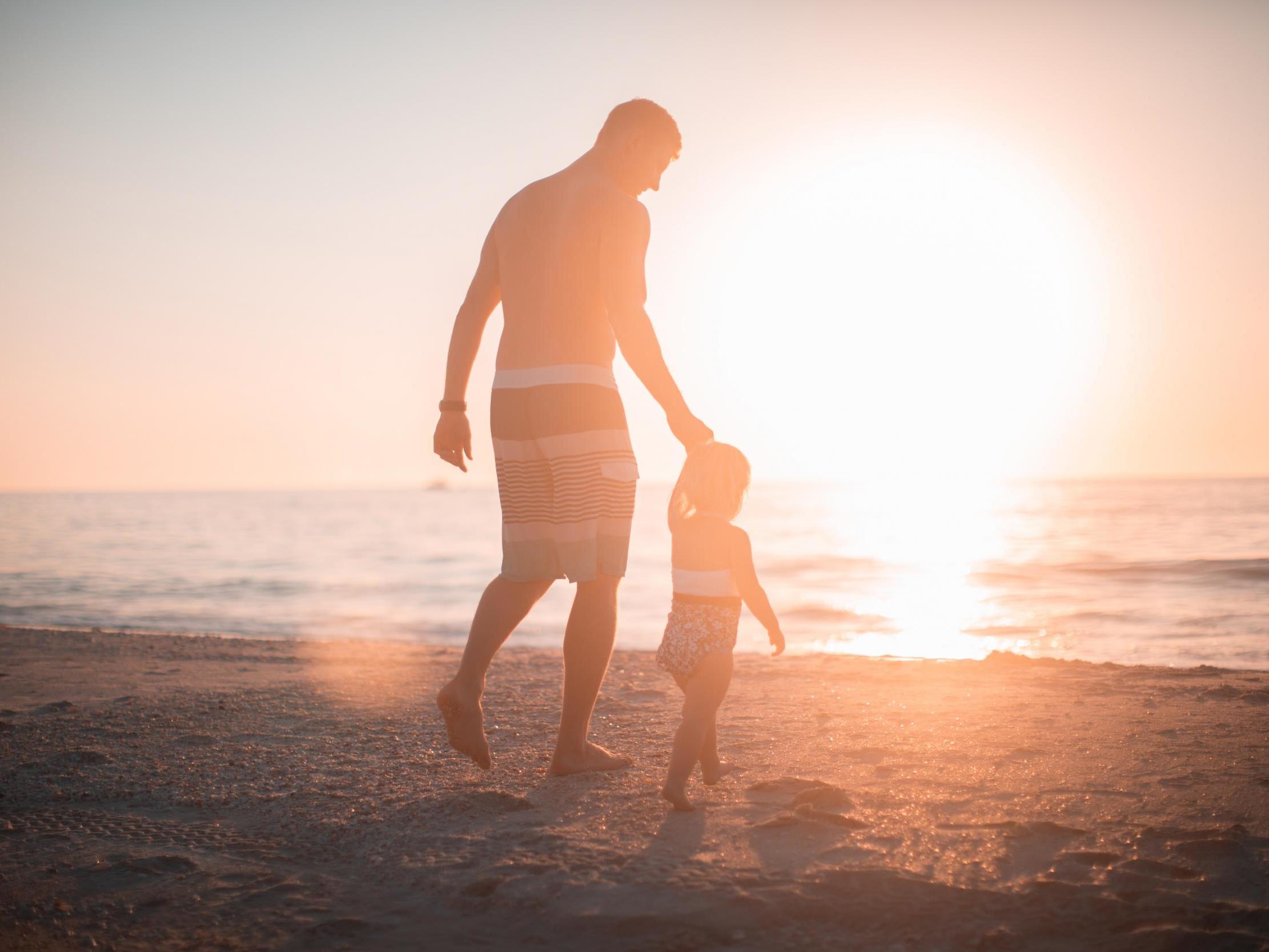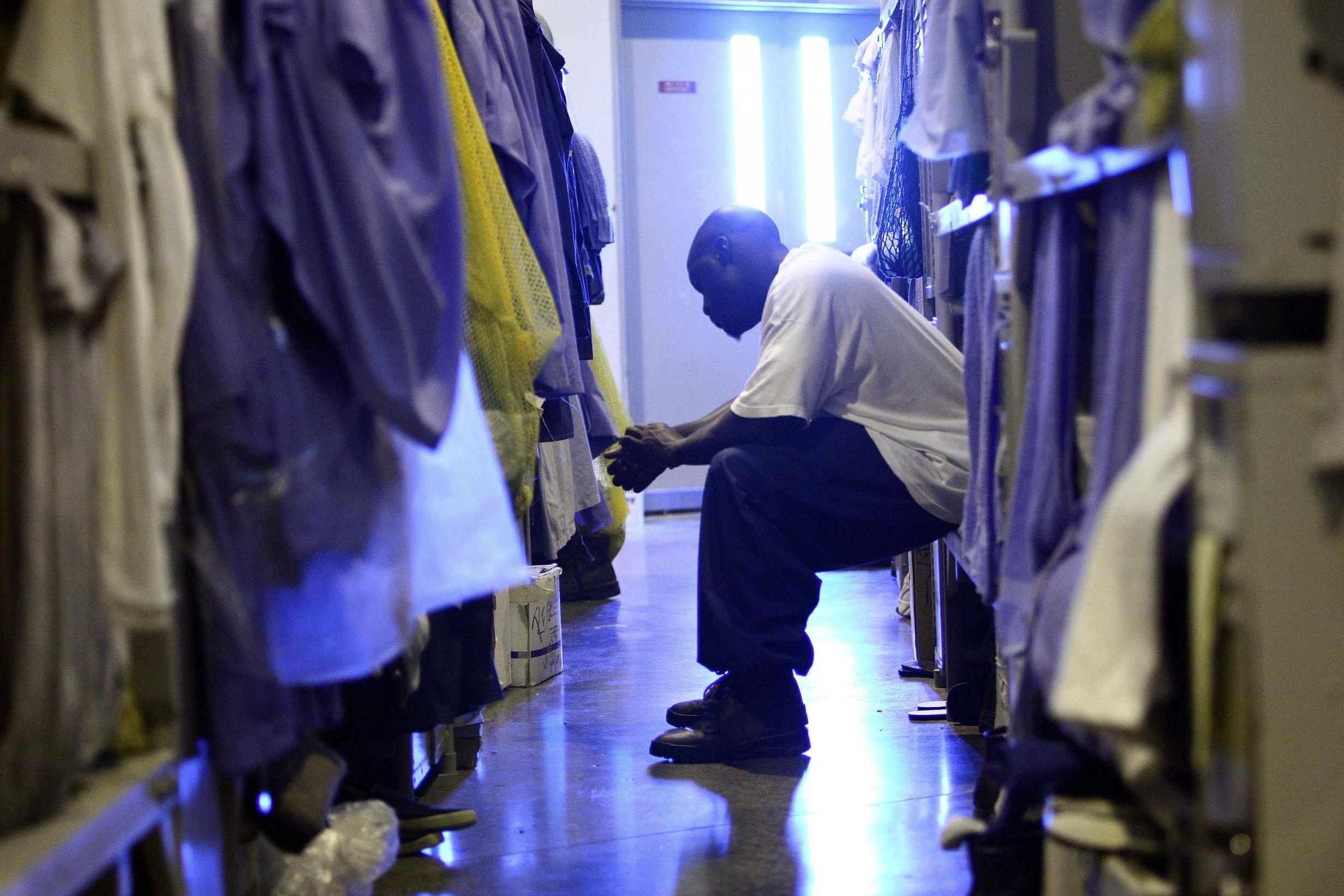My daughter taught me prison is part of our story, but not all of it
‘He was in jail. But this isn’t about the jail, this is about the cabin’ – Morgan Gliedman recounts how her child helped her navigate the stigma of her partner’s incarceration

Your support helps us to tell the story
From reproductive rights to climate change to Big Tech, The Independent is on the ground when the story is developing. Whether it's investigating the financials of Elon Musk's pro-Trump PAC or producing our latest documentary, 'The A Word', which shines a light on the American women fighting for reproductive rights, we know how important it is to parse out the facts from the messaging.
At such a critical moment in US history, we need reporters on the ground. Your donation allows us to keep sending journalists to speak to both sides of the story.
The Independent is trusted by Americans across the entire political spectrum. And unlike many other quality news outlets, we choose not to lock Americans out of our reporting and analysis with paywalls. We believe quality journalism should be available to everyone, paid for by those who can afford it.
Your support makes all the difference.It was the Christmas we’d waited for her whole life. My daughter, Melly, was up early, her blond hair still tangled from sleep. From her place at the window, she’d turn back to smile at me every few moments. She was a week shy of six and her soft, round hands and pink cheeks held the last breaths of babyhood. “They’ll be here,” I promised. When she saw her grandpa’s car turn into the driveway, she jumped up and down, “He’s finally here! He’s really here!”
Her grandfather had picked up her dad from prison that morning, and as they walked toward us, none of us could quite believe that after so long, so many seasons of being a family fractured, her dad was really here, with us; that we were really here, together.
Aaron had been incarcerated since right before Melly was born. Despite this, their bond had flourished, and she is as attached to him as any child is to a parent. That evening, with Nat King Cole in the background, he lifted her up to place the gold star on top of the Christmas tree. It was both the best Christmas ever, and yet it felt strangely as if it had always been that way, as if we had always been a regular family, instead of one separated by hundreds of miles and cold metal bars. The prison Aaron had been in resembled a castle, and that’s how our daughter referred to it: the timeout castle, the jail castle.
While I was not sentenced to serve time, I was also not innocent in what landed Aaron in prison. We had struggled with opioid use disorder, and, in the throes of addiction, spiraled our lives into an incoherent web. We were arrested when I was nine months pregnant. Getting to be Melly’s mom is what saved me from myself, and set me on the path to health and happiness. Part of rebuilding my life after the arrest has been a career working to expand access to evidence-based addiction treatment and harm-reduction services, and advancing criminal justice reforms to strengthen communities and keep families together. I know well that the baggage of entanglement with the criminal justice system – the collateral consequences, emotional scars and dark cloud of stigma – lingers long after the debt to society has been paid. But naively, I hoped that Aaron coming home was the end of that chapter of our lives; I wanted the castle to close its doors behind us and free us of its shadow forever.
In reality, Aaron’s release marked not the end of our worrying about how to navigate the topic, but rather just the beginning. Our village of friends, family and colleagues includes many who have been directly affected by the same issues we struggled with, and others who have no personal experience themselves, but empathetic hearts that expanded to understand our situation. We are so fortunate to have in our lives these people who supported us through the castle years and excitedly helped us plan for Aaron’s homecoming.
I tensed up because while I hope one day this will no longer be the case, justice system involvement too often carries negative judgements and biases, not just toward the adults involved, but about our children as well
With acquaintances, though, I was typically more guarded; I didn’t lie, but I also didn’t volunteer the details of these differences about our family. I can only imagine that when Aaron suddenly showed up in the picture, taking our daughter to school and helping with homework at the library, there must have been some questions about who this person was, this dad, who’d appeared seemingly out of nowhere.
As soon as Aaron got home, Melly seemed to start talking about the castle more, and with anyone. In school she wrote a book, “The Day My Dad Came Home”, full of colourful illustrations, with hearts over each letter “i”. On a family vacation in New Mexico, she remarked to the man driving our cab to the airport: “That’s where we bought my dad food packages when he was in the jail castle!” as we passed a Walmart. And to a classmate we don’t know well, nonchalantly began a story: “When my dad was in jail Mommy and I rented a cabin near the castle...”
The little girl stopped in her tracks. “Your dad was in jail?”
“Yeah,” Melly said. “He was in jail. But this isn’t about the jail, this is about the cabin.”
I had been walking a few feet ahead of the kids, alongside the classmate’s father. Why did I tense up? Hadn’t I spent all those years privately trying to build her a life without shame, while publicly working to lessen the stigma of incarceration? I tensed up because while I hope one day this will no longer be the case, justice system involvement too often carries negative judgements and biases, not just toward the adults involved, but about our children as well.

Now seven, Melly understands enough about the world to get that prison is not viewed as a positive thing. Recently we were at the park and a group of kids were playing “bad guys”, pretending to catch and lock each other up. On the walk home, I asked her how that made her feel.
“Don’t be silly, Mom,” she said, with a roll of the eyes, a hint of the teenager she’ll grow into before I’m ready to let my little girl go. “It’s just a game. In real life, just because someone makes a bad choice and goes to jail that doesn’t mean they’re a bad person.”
If Aaron had been walking with us that afternoon instead of at work, I’m sure he also would’ve told me to lighten up. Of the two of us he’s the one who paid the harsher debts of our former life, but he’s also the one who cares much less about what people think. My fretting over perceptions, to him, amounts to little more than living in the past, instead of in our present. And it’s true, our present has brought great joys. In addition to finally being able to be a family, and Melly finally getting to have both of her parents around the dinner table, in the year since Aaron’s return we’ve also welcomed a second child, a beautiful baby boy who is adored and doted on by us all, but most especially by his proud big sister.
One of the things we’ve relished most about Aaron being home is being able to take trips together, catching up on the years where our only “family vacations” were to visit him in prison. After we returned home from New Mexico, Melly and I were mulling over where we should go next. Florida, I suggested, or to visit my sister in Los Angeles. Or Portland, wouldn’t Oregon be fun?
“I know!” Melly said. “Let’s go to my favorite hotel!”
“Seriously?” I asked. “You want to go to the Holiday Inn by the castle?”
“Yeah! Why not? Their breakfast has the best potatoes, and that swimming pool is my favorite one. When we went there we got to go see Daddy but we never got to stay there with Daddy. I want to go back there, with Daddy and little guy.”
It’s tempting to only remember the hard parts of those years, the sad moments of her asking him in visits, “but why can’t you just come home with us now? I want you to be with me now.” But she did have a point; we also did find ways to have a lot of fun. Together with her grandparents, our trips upstate were little adventures, the rituals and traditions we made; unconventional family time, sure, but cherished family time nonetheless. In coping so gracefully with our family’s challenges, changes and differences, Melly has shown me how to own our story, how to just say it, with confidence, and then move on to what matters now. The good, the hard, the sweet and the messy, that was all part of what got us to today.
He was in jail. But this isn’t about the jail, this is about the cabin.
Prison is part of our story – of her story – but it’s not the whole story. We are so lucky to get to move forward, growing as a family, acknowledging where we’ve been, as we choose together where we are going. In our daughter’s twinkling eyes, her dad and I no longer need to be defined by the worst day of our lives.
© The Washington Post
Join our commenting forum
Join thought-provoking conversations, follow other Independent readers and see their replies
Comments